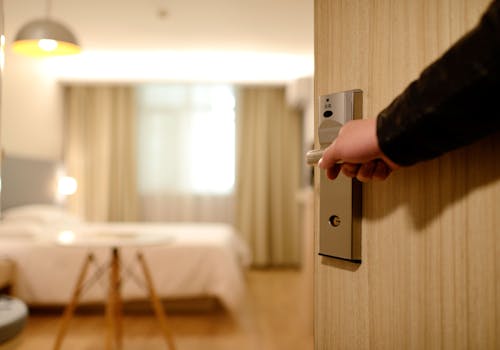Enhancing guest experiences through thoughtful hotel design.
The design of a hotel plays a crucial role in shaping the overall guest experience. From the moment guests step into the lobby to the comfort of their rooms, every aspect of the hotel’s design can leave a lasting impression. The layout, aesthetics, and functionality of the space can greatly impact guests’ satisfaction, comfort, and overall perception of the hotel. In this article, we will explore the various ways in which hotel design influences the guest experience.
The Importance of Hotel Design in Enhancing Guest Experience

The design of a hotel plays a crucial role in shaping the overall guest experience. From the moment a guest steps foot into the lobby, they are immediately immersed in the atmosphere and ambiance that the hotel design creates. The importance of hotel design in enhancing guest experience cannot be overstated.
First and foremost, hotel design sets the tone for the entire stay. A well-designed hotel creates a sense of anticipation and excitement, making guests feel welcome and comfortable from the very beginning. The layout of the lobby, the choice of colors, and the overall aesthetic all contribute to the initial impression a guest forms of the hotel. A thoughtfully designed space can make guests feel like they have entered a luxurious oasis, while a poorly designed space can leave them feeling underwhelmed and disappointed.
Furthermore, hotel design can greatly impact the functionality and convenience of a guest’s stay. A well-designed hotel takes into consideration the needs and preferences of its guests, ensuring that everything is easily accessible and intuitive. For example, a well-designed room will have ample storage space, conveniently placed outlets for charging devices, and a comfortable workspace for business travelers. On the other hand, a poorly designed room may have limited storage options, inconveniently placed outlets, and a lack of attention to detail that can make a guest’s stay less enjoyable.
In addition to functionality, hotel design also plays a significant role in creating a memorable and unique experience for guests. A hotel that stands out in terms of design can leave a lasting impression on guests, making them more likely to recommend the hotel to others and return for future stays. Whether it’s a stunning rooftop bar with panoramic views, a beautifully landscaped garden, or a thoughtfully curated art collection, these design elements can elevate a guest’s experience and make their stay truly unforgettable.
Moreover, hotel design can also contribute to the overall well-being and comfort of guests. A well-designed hotel takes into consideration factors such as lighting, acoustics, and air quality to create a space that promotes relaxation and rejuvenation. For example, a hotel with ample natural light, soundproofed rooms, and a well-regulated temperature can greatly enhance a guest’s comfort and quality of sleep. These design elements can make a guest feel more refreshed and energized, ultimately leading to a more enjoyable stay.
In conclusion, the impact of hotel design on guest experience cannot be underestimated. From the initial impression to the overall functionality and comfort, hotel design plays a crucial role in shaping the guest’s perception of their stay. A well-designed hotel creates a welcoming and memorable experience, while a poorly designed hotel can leave guests feeling disappointed. Therefore, hotel owners and managers should prioritize investing in thoughtful and innovative design to ensure that guests have a truly exceptional stay.
Q&A
Question: What is the impact of hotel design on guest experience?
Answer: Hotel design can greatly impact guest experience by creating a welcoming and comfortable atmosphere, enhancing functionality and convenience, and reflecting the brand identity and target market of the hotel.In conclusion, hotel design plays a significant role in shaping the guest experience. A well-designed hotel can create a welcoming and comfortable atmosphere, enhance functionality, and provide a sense of luxury and relaxation. Elements such as layout, aesthetics, lighting, furniture, and amenities all contribute to the overall guest experience. A thoughtful and innovative design can leave a lasting impression on guests, leading to positive reviews, repeat visits, and increased customer satisfaction. Therefore, hoteliers should prioritize investing in well-planned and aesthetically pleasing designs to create a memorable and enjoyable stay for their guests.